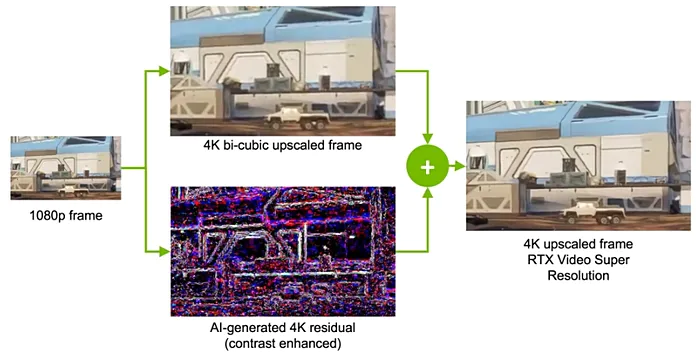© ROOT-NATION.com - Use of content is permitted with a backlink.
A new driver from NVIDIA improves the quality of streaming video on the Internet, especially for low-resolution clips, as this is the only quality allowed. It’s called RTX Video, and it offers to upscale online video to HDR and upscale it for the user to 4K resolution, using its latest developments in artificial intelligence to implement the feature. This feature is only available to owners of GeForce RTX GPUs and the RTX 40 and 30 series.
According to NVIDIA, browsers’ scaling methods can result in blurry images that don’t live up to the promised quality, but with the new driver, users will get help from their GPUs to scale videos for them. This will help improve the quality of more streams and reduce the load on GPUs to handle these clips with the driver. This only applies to video streaming in Chrome and Edge and will not improve the quality of games.

One of the biggest developments of the past year was that of NVIDIA, which brought the company huge profits for its activities in the field of artificial intelligence. This applies to its chips, GPUs and more, helping to harness the power of machine learning to evolve, promising faster features and improved capabilities for the new technology.
The company has committed to focus on the development of artificial intelligence and digital infrastructure, and large-scale cooperation with Vietnam will help expand this field of activity.

In addition, the well-known H100 chips for enterprise AI have done wonders for the company, used by companies such as OpenAI, Meta, and more. Given that the company has been paying significant attention to AI since last year, NVIDIA is positioning itself as a producer of important features that make machine learning useful for users. The new RTX Video HDR feature offers a useful AI-powered approach to online video streaming, but while it’s limited to blurry videos, it still has the potential for future integration with other aspects of the technology.
Read also:
- The Nvidia GeForce RTX 40 Super graphics card series has been announced
- NVIDIA, SK Hynix, and Micron are partnering on HBM3 memory supplies


